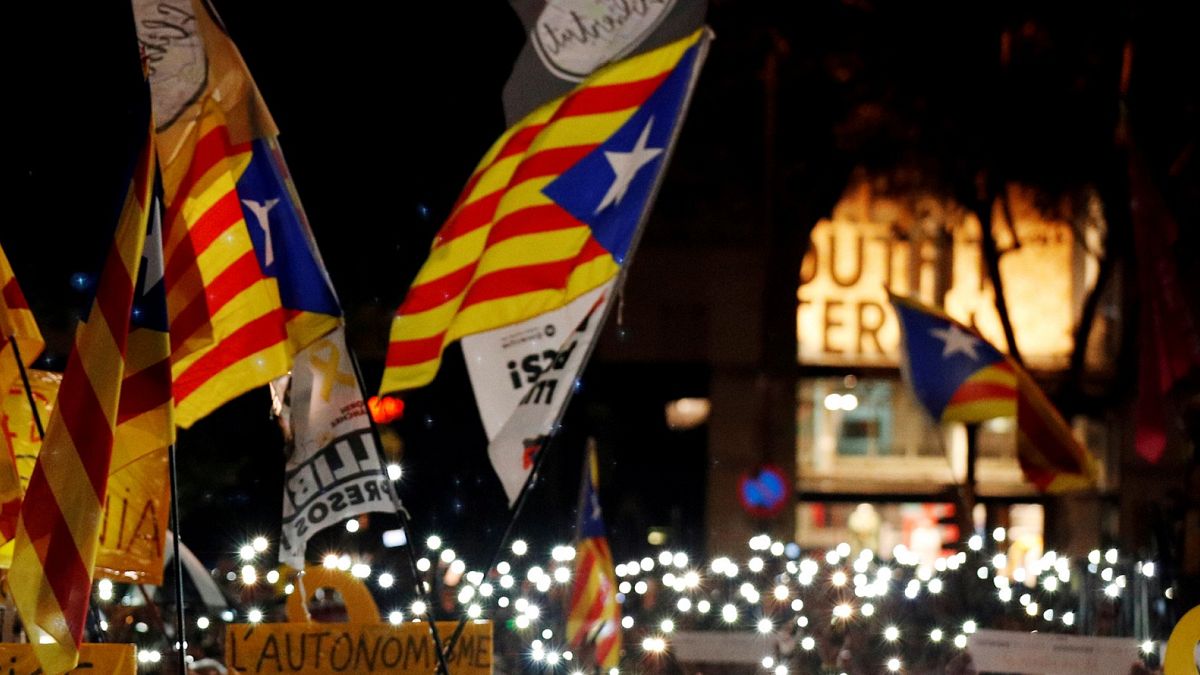In fact, the [Spanish] Constitution - is an excellent mix of modern words and ancient – and by that I mean authoritarian and undemocratic concepts.
The Spanish Constitution represents something different depending on who you speak to in Spain. While it is widely acknowledged that the document does have its weaknesses, it has, over its forty years of existence, kept Spain together and set it on the path to full democracy. In the last year, particularly in Catalonia, the democratic values behind the Constitution have been called into question. Euronews asked Catalonian Member of the European Parliament Professor Dr Josep-Maria Terricabras for his thoughts on the document’s fortieth anniversary.
Euronews: Do you think that the Spanish Constitution has met the expectations of those who created it and of the Spanish people who validated it in a referendum held 40 years ago?
Josep-Maria Terricabras: If you distinguish between those who created the Constitution and those who validated it 40 years ago, my answer will be yes in the first case and a question mark over the second one. Yes, because the Constitution was written under the pressure of the situation and - as we know now - under the pressure of the King and of the military power, especially when it refers to Article 2 [the notion that Spain’s unity is indivisible]. Thus, if they wrote it substantially, why shouldn’t they be happy with its long life? Many voters are still happy with it, but many of them repented some time ago. If you doubt it, ask in Catalonia or the Basque Country (where, by the way, the Constitution was not even approved initially).
Euronews: And now, 40 years later, is the Constitution still relevant to the current situation in your country; the tensions related to the Catalan independence movement as well as the place of Spain in the European Union?
Josep-Maria Terricabras: Of course it is not relevant. How can it be if it declares that the army is the guarantee of the sovereignty and independence of the State (Article 8)? Article 1.2 says before that national sovereignty is vested in the people. Who can understand this intellectual doublespeak in democratic terms?
Article 155, applied recently against Catalonia, has been interpreted in an incrediblly undemocratic way. You can’t find in it anything that can support the interpretation given unless you are just looking for an excuse to apply the central Spanish government’s previously decided laws.
In fact, the Constitution is an excellent mix of modern words and ancient – and by that I mean authoritarian and undemocratic concepts.
Euronews: Do you think that changes should be made to the Spanish Constitution, and if so, what should they be?
Josep-Maria Terricabras: I don’t care at all. Since it is not and will not be my Constitution, I don’t have to intervene. But, when I see the recent evolution of Spanish politics in the majority of the so-called “constitutional” parties towards more and more right wing positions, then I am sure that they are not going to agree, at least in the next future, on a constitutional reform. When they will agree, the final result will be much worse than the present text. For many of them (who so far - unbelievably enough - have not condemned Franco and his regime), the spirit of Francoism is still living on. My deepest condolences!
_Professor Dr Josep-Maria Terricabras is a Republican Left of Catalonia Member of the European Parliament._
Opinions expressed in View articles are solely those of the author.
